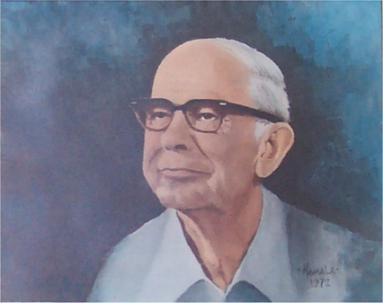 As a tribute to the Phantom Springsteen played “I’ll Fly Away” last night in Tampa. There are few songs in the great American song book that could have been a better tribute to the man. Albert Edward’s Brumley’s hymn dates back from 1929 and is one of the most sung and well known spirituals of all time. The simple lyrics and melody are easy to connect to, giving the song a universal appeal that reaches far beyond the sacred. “I’ll Fly Away” seems to be a song that speaks to people regardless of their believes. The song is filled with promise, with a firm believe that there’s a better life beyond this one. A very comforting thought to anyone who has ever dealt with the loss of a loved one. Something we all have dealt with or have to deal with at some point in our lives. Not surprisingly the hymn has known countless commercial releases over the years, and countless more live performances, often in very different arrangements.
As a tribute to the Phantom Springsteen played “I’ll Fly Away” last night in Tampa. There are few songs in the great American song book that could have been a better tribute to the man. Albert Edward’s Brumley’s hymn dates back from 1929 and is one of the most sung and well known spirituals of all time. The simple lyrics and melody are easy to connect to, giving the song a universal appeal that reaches far beyond the sacred. “I’ll Fly Away” seems to be a song that speaks to people regardless of their believes. The song is filled with promise, with a firm believe that there’s a better life beyond this one. A very comforting thought to anyone who has ever dealt with the loss of a loved one. Something we all have dealt with or have to deal with at some point in our lives. Not surprisingly the hymn has known countless commercial releases over the years, and countless more live performances, often in very different arrangements.“Some bright morning when this life is over, I'll fly away” the song opens. That line not only implies that the reward awaits us in the here after, but also that our passing comes as a release of suffering. A theme that’s repeated through out the song. Such a song could only have been written by someone with Brumley’s background. Born in 1905 to a family of sharecroppers in Oklahome, Albert was no stranger to hardship. As an agricultural system sharecropping stood somewhere between slavery and medieval feudal practices. Sharecroppers needed something to cling on to in order to face a life that was often filled with poverty. Some found faith at the bottom of a bottle, some in church. Albert’s parents were of the second category, highly religious people. Story goes that, for a sharecropper, Brumley was exceptionally frail and tender. He never buffed up like most farmer boys did from working in the fields and is characterized as shy in the biographies I found.
A text book case of shallow waters being deep, Brumley was drawn to music and wanted to be taught in the craft. Age 26 he left home penniless and headed for Hartford, Arkansas where, so he heard, the Hartford Music Company, provided the training he so desperately wanted. HMG owner E.M. Barlett gave Brumley his boarding and education for free, moved as he was by this skinny and shy fellow that appeared on his doorstep telling him "Mr. Bartlett, I hear that you'll teach a fella how to sing and how to write music. I've come to learn and I understand I don't have to have any money." Without Barlett’s charity “I’ll Fly Away” would probably never have seen the light of day. Ironically, Albert himself, called the song most associated with his career “a funny little ditty”. He never really thought it anything special, but it is probably because of its simplicity and directness that the song became to have such a lasting appeal. Only a few years back it became a centre piece in the Coen brother’s “O Brother Where Art Thou” in an especially moving rendition by Allison Krauss.
Thematically the song sits well in Springsteen’s canon. Taking from it’s religious context the lyrics speak of hope of resilience. “I’ll Fly Away” is the perfect metaphor for change, of struggling to improve your life. The song can easily be interpreted as leaving behind your old life, breaking the cold iron shackles of your old existence, crawling out of the shadows into the light of a new life. Metaphorically it is a song about transition, about reaching for something better. In Tampa last night however, we should take the song in its literal context. The Phantom passed on, where ever he went, we’ll comfort ourselves with the thought that it’s a better place.
"I'll Fly Away"- Bruce Springsteen, Tampa 2008
Courtesy of Gina Giambone






2 comments:
People like you really take the cake. FIRST, you don't UNDERSTAND the "religious context" and then you twist the song OUT of context to fit your own interpretations. If Albert Brumley were alive to read your words of Springsteen's interpretation, he would probably turn over in his grave.
Well might I turn Born in the USA into a song glorifying George Bush for his invasion of Iraq and all the little children that he and the troops saved from the butchery of Saddam Hussein. Put that into you and the "Boss's" anti-american leftist diatribes about the Vietnam war and SMOKE IT.
Maybe I'll set up a blog to start "reinterpreting" Springsteen's music into songs of praise for the glories of the crucifixion and resurrection of Jesus Christ.
Or maybe you could STOP taking stuff out of the Christian context in which they were written and write your own flippin' music.
If my interpretation of the song is incorrect, I'm open for debate on that.
It helps to know though where my interpretation skews.
Post a Comment